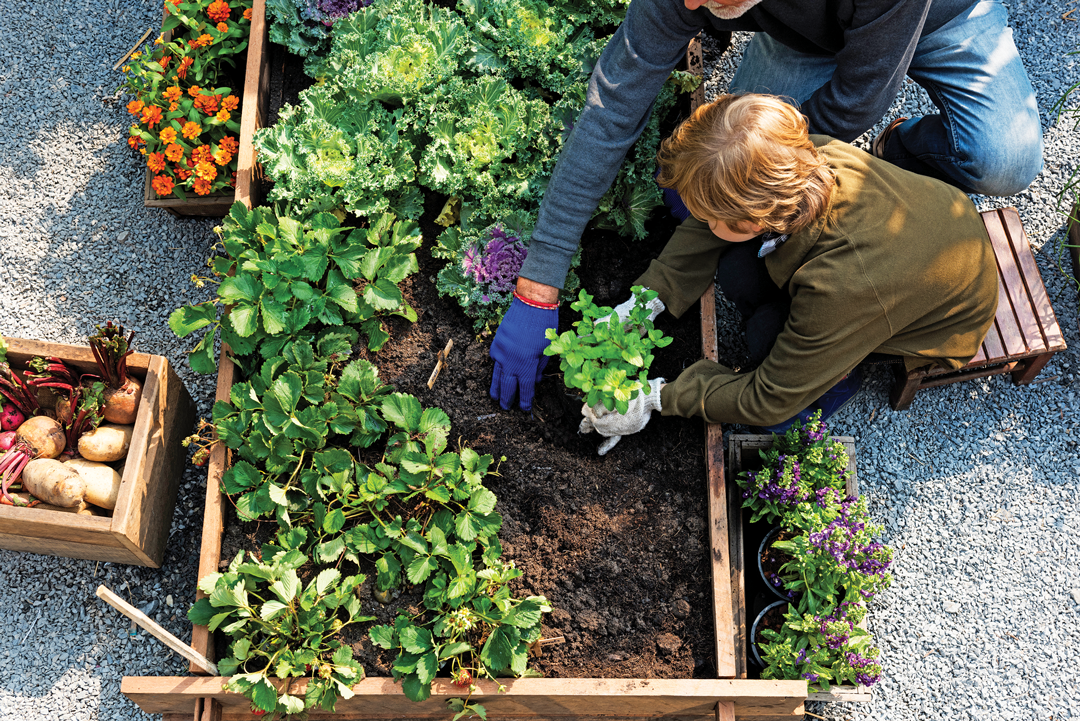Sustainable Gardening Practices for an Eco-Friendly Garden
Sustainable Gardening Practices for an Eco-Friendly Garden
Blog Article
Unlocking the Advantages of Horticulture: A Detailed Take A Look At the Different Kinds and Their Effect on Health
Exploring the diverse benefits of horticulture discloses a range of techniques that significantly improve specific well-being. As we check out these diverse gardening techniques, it becomes noticeable that their influence can reverberate on individual, social, and ecological levels, motivating a more detailed look at exactly how these links form a cohesive story of holistic health.
Kinds of Gardening

Blossom gardening, one more preferred category, emphasizes the visual allure of grown flowers. This kind can enhance landscapes and advertise biodiversity by drawing in valuable pollinators. Herb gardening entails growing fragrant and cooking plants, contributing both to cooking and natural solutions.
Container gardening deals adaptability, allowing individuals with minimal space to engage in gardening by utilizing pots and planters. This method is particularly popular in urban setups. Elevated bed horticulture, on the various other hand, entails developing raised stories that enhance soil drain and access, making it much easier for garden enthusiasts to manage their plants.
Finally, neighborhood horticulture fosters collaboration amongst people in common spaces, advertising social communication and cumulative obligation. Each type of gardening offers distinctive objectives and accommodates different preferences, making gardening a functional activity that can be tailored to private demands and environments.
Mental Health And Wellness Advantages
Taking part in numerous kinds of horticulture not just produces tangible rewards such as fresh fruit and vegetables and stunning flowers yet additionally offers considerable mental health advantages. Research shows that gardening can be an effective device for lowering stress and anxiety, anxiousness, and clinical depression. The act of often tending to plants and growing a yard promotes a sense of objective and accomplishment, which can improve overall emotional health.
In addition, gardening encourages mindfulness, as it calls for individuals to concentrate on the present minute, whether it be planting seeds or supporting development. This mindfulness practice can result in lowered rumination and boosted state of mind security. The direct exposure to natural surroundings during horticulture has additionally been connected to boosted cognitive functioning and reduced feelings of fatigue.
Social interaction plays an important function in psychological click here for info health, and neighborhood gardening campaigns give chances for individuals to get in touch with others, promoting a feeling of belonging. The shared experience of gardening can cultivate friendships and assistance networks, better strengthening emotional strength.
Physical Health And Wellness Perks
Many people may not recognize that horticulture additionally provides substantial physical wellness advantages. Involving in horticulture tasks calls for a variety of physical motions, consisting of flexing, lifting, excavating, and growing, which collectively add to enhanced strength, versatility, and endurance. These actions can enhance cardiovascular health by advertising an elevated heart price, consequently decreasing the risk of heart problem.
Additionally, horticulture can serve as a moderate-intensity exercise, helping individuals achieve recommended physical task degrees. Studies indicate that normal involvement in horticulture can burn considerable calories-- approximately 200-400 calories per hour, depending on the intensity of the tasks performed. Such calorie expenditure is valuable for weight management and total metabolic wellness.
Furthermore, direct exposure to sunshine throughout gardening can facilitate the synthesis of click site vitamin D, which plays an essential function in preserving bone health and sustaining immune feature. The act of gardening often entails functioning with dirt, which has actually been connected to possible mental and physical health advantages due to the presence of valuable bacteria.
Social Links With Horticulture
The common elements of gardening foster purposeful social connections amongst individuals. Community yards, in particular, function as vivid centers where individuals from diverse histories collaborated, growing not only plants but likewise connections. These common rooms urge collaboration, allowing individuals to exchange expertise, skills, and sources, thus boosting their gardening experience and cultivating a feeling of belonging.
Engagement in gardening activities commonly causes the development of relationships and support networks. Individuals frequently unify for usual objectives, such as growing periods, harvest celebrations, or instructional workshops, which strengthen social connections and develop a feeling of area. Such interactions can alleviate feelings of seclusion and enhance mental well-being, as individuals discover companionship and sociability in common undertakings.

Ecological Effect of Gardening
Horticulture dramatically adds to environmental sustainability in multiple means. Home yards offer important habitats for various species, consisting of pollinators such as bees and butterflies, which are vital for environment wellness.

Moreover, yards play an important function in water preservation. Well-planned landscapes, consisting of indigenous plants and linked here xeriscaping, reduce water usage and avoid overflow, thus shielding local rivers from air pollution.
Conclusion

The diverse types of horticulture-- including veggie, blossom, herb, container, and raised bed-- contribute to psychological and physical health and wellness, foster social connections, and advertise environmental sustainability. By involving in gardening techniques, people can experience improved quality of life while also supporting community bonds and environmental health and wellness.
Report this page